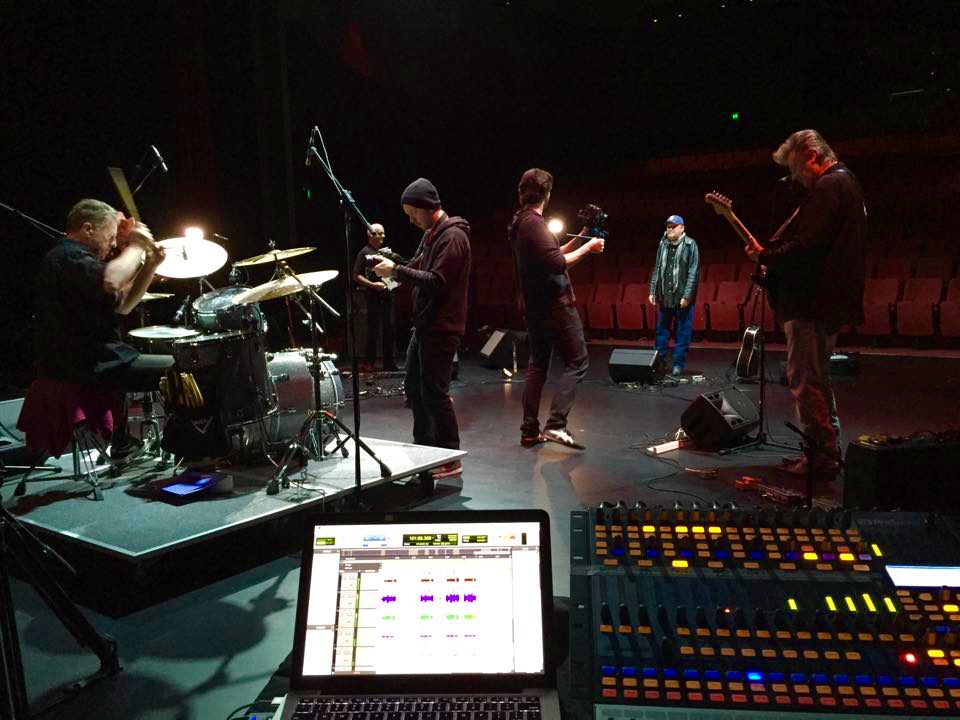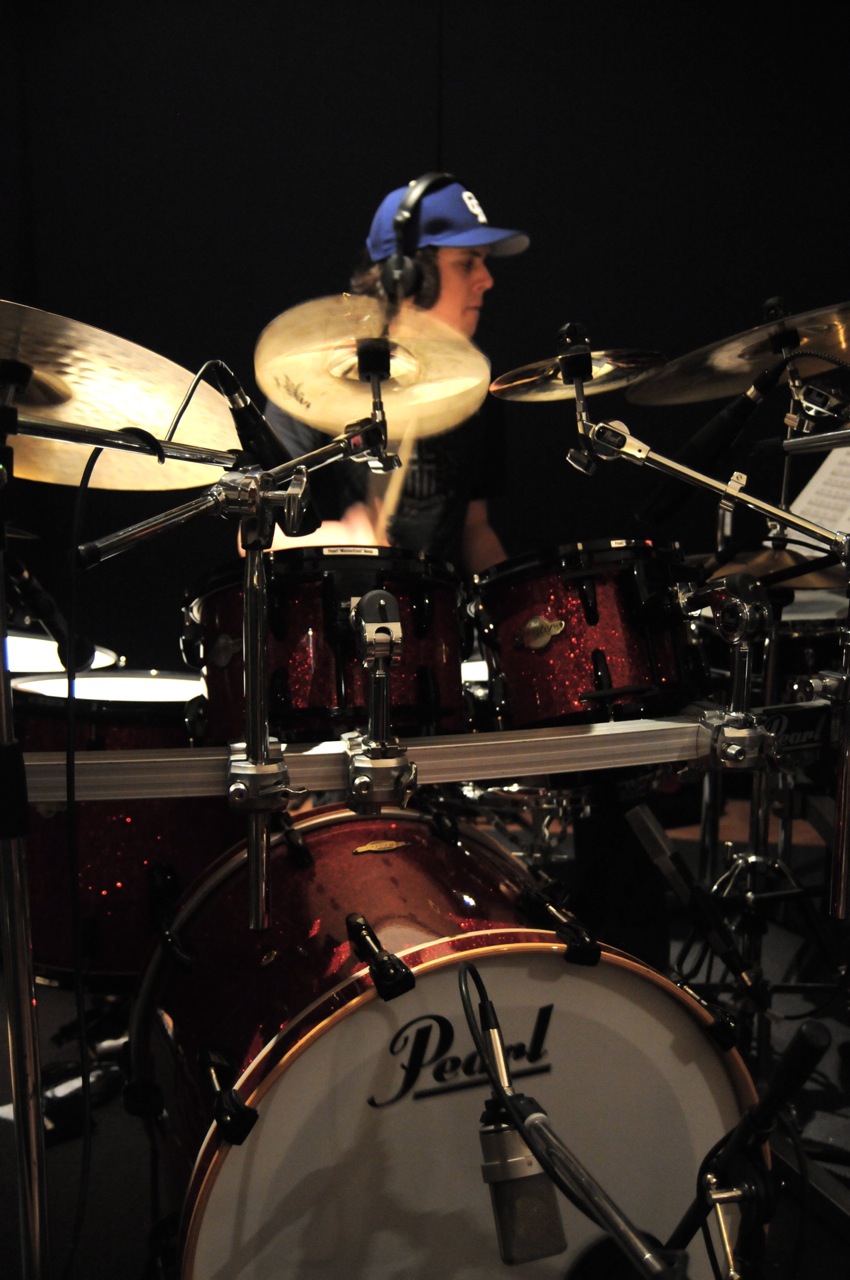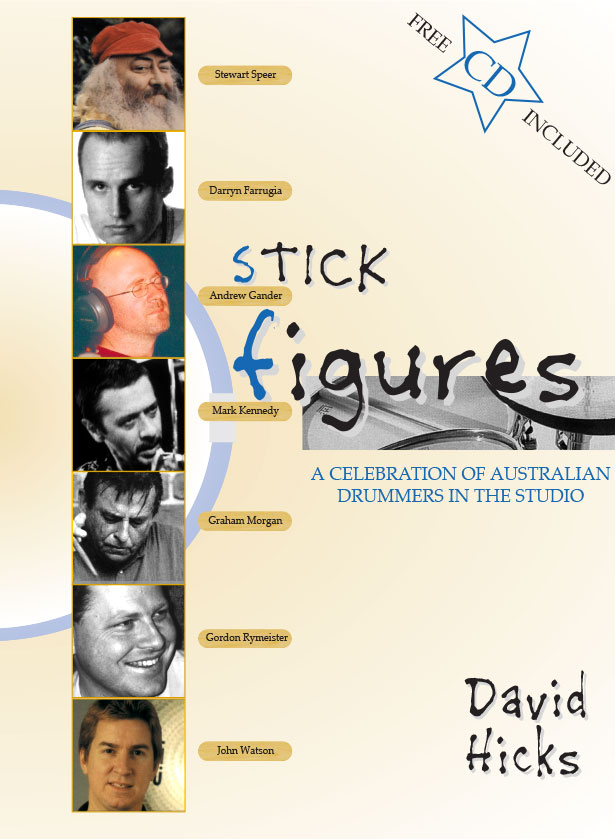Introduction
When recordings are made using a rhythm section (principally drums, bass and piano and/or guitar), that rhythm section is pivotal to its success. Vocalists might beg to differ! The studio drummer is the foundation of these basic tracks. This post dives into the world of the studio drummer, highlighting the skills they need to bring, what the environment is likely to be, and the impact they have on the music we cherish. When a studio drummer is named below, this is to indicate that the topic is covered in my Stick Figures drum book.
What is a Studio Drummer?
Often the first item of a composer’s agenda, and the instrument which can set a mood for the song, drummers could be considered the backbone of the recording process. Their work provides the foundation (or groove) that the other musicians build upon. Note that even electronic music, which might use few human performers (or perhaps none), often relies upon an insistent beat or loop; sometimes a digital sample of a famous drummer.
Unlike their live performance counterparts, studio drummers must excel in a controlled environment where precision and adaptability are paramount.
- Definition: A studio drummer specializes in recording tracks within a studio setting.
- Differences: Studio drummers focus on perfecting tracks for playback. In contrast, performing live in front of an audience allows greater freedom to invent and embellish, perhaps even change dynamics or tempo, according to the emotion of the moment. Witnessing a live performance, the audience will generally not notice imperfections as readily as in a recording. See Andrew Gander’s comments in particular, although all the Stick Figures drummers discuss their experiences in this regard.
Skills and Qualifications
The expertise of a studio drummer extends beyond mere rhythm, to musicality, technical profiency and creativity.
- Technical Proficiency: Mastery of various drumming techniques, stylistic approaches and sometimes percussion instruments. Mark Kennedy sets the pace here, with both drums and percussion.
- Musical Reading: The ability to interpret musical notation, sometimes complex arrangements, and adapt on the fly. There are exceptions where no notation is employed, when the drummer needs to play arrangements by ear – e.g. John Watson. Darryn Farrugia also has a story about having to copy a strange drum machine pattern…
- Versatility: Knowledge of a range of musical genres and styles, extending to recognition of standard tunes in common repertoire (e.g. jazz standards, pop hits, etc.). Graham Morgan and Darryn Farrugia exemplify the typical variety encountered.
Key Responsibilities
The role of a studio drummer encompasses several critical responsibilities, each contributing to the creation of musical masterpieces.
- Collaboration: They work closely with producers and artists to realize a musical vision (team skills important here!). All the Stick Figures drummers have anecdotes about some of the situations they have found themselves in.
- Recording: They lay down the drum tracks, often layering different rhythms and textures; preferably this is achieved in the shortest time possible. Some drummers prefer to record ‘live’ along with the rhythm section, to capture a more lifelike performance. Others might record alone, or with a guide track of some sort. Of course it’s now common for a drummer to record at home by themselves, and send the recording back to the person employing them. This appears to be a slightly better income-generating option for many.
- Creativity: They may be called upon to contribute to the musical arrangement, offering insights and suggestions to enhance the song. Often a particular drummer is contracted because of they have a track record of suggesting tasteful ideas which enhance a song. Gordon Rytmeister and Andrew Gander are well known for this.
The Studio Environment
A studio drummer’s domain is surrounded with technology designed to capture every nuance of sound. This environment is both their workshop and their instrument. The more studio experience a drummer has, the better he/she will perform in this somewhat ‘un-natural’ environment.
- Soundproof Spaces: Designed to eliminate external noise and capture pure sound.
- State-of-the-Art Equipment: High-quality drums, microphones, and recording tech. plus capable engineers. All the Stick Figures drummers speak about their favourite studios/engineers, and why they prefer some more than others.
- Collaborative Atmosphere: A space where creativity and precision meet. Consider the challenge of the previously-mentioned home-recording drummer – how does that drummer generate the same passion and energy they might normally use on a live stage, by themselves?
Overcoming Challenges
Despite the seemingly glamorous aspect of the job, studio drummers face their fair share of challenges, from the pressure to perform perfectly on every take to the need for constant adaptability and learning.
- Dealing with Pressure: Embracing the iterative process of recording; responding to instructions in a positive way; avoiding nervous tension. Gordon Rytmeister has some interesting tales.
- Maintaining Versatility: Constantly learning and adapting to new musical styles. Stewie Speer had to adapt from jazz to rock during his career.
- Creative Contributions: Balancing technical skill with creative input.
Conclusion
The role of the studio drummer is both demanding and rewarding. They might, if all falls into place, manage a reasonable income, after some years honing their craft. Through their skill and dedication, they lay down the heartbeat of countless tracks, often without the recognition afforded to front-line musicians. Yet, their contribution is indispensable, providing the foundation upon which all other elements of a song are built. As we’ve explored the various facets of what studio drummers do, it’s clear that their impact on music is profound and far-reaching. It’s a special feeling when the studio drummer hears their great performance replayed in the control room, and the producer says, “That’s the one!”.


